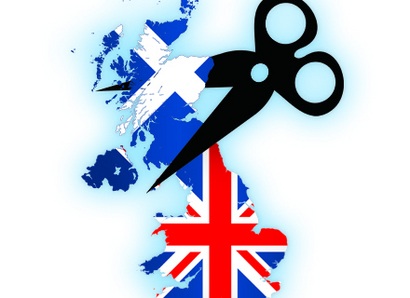Brendan O’Neill says that despite the common assertion that those in favour of Brexit can’t object to Scottish independence, the people who supported Brexit have a strong case to argue against Scotland splitting away from the United Kingdom:
The argument is that if you backed Brexit, then you haven’t got a leg to stand on when it comes to opposing Nicola Sturgeon’s latest stab at Scottish independence. They’re the same thing, innit? ‘No one involved in Brexit, or who supported Brexit, can make any argument against Scottish independence except emotional ones’, says a writer for the Spectator.
Actually, the opposite is the case. Brexiteers are precisely the right people to put the case against Scottish independence. Because the argument against Scottish independence is the same as the argument for Brexit. Namely that people should not shy away from democracy, with all the debate and disagreement and difficulties it involves, but rather should embrace it. That instead of hiding from our responsibility to engage in national public life, or handing that responsibility over to ‘expert’ external bodies who will do decision-making on our behalf, we should accept this responsibility, and cherish it. Where Brexit represented a brave reclaiming of the institution of democracy, Scottish independence is driven by a sense of exhaustion with it, and by a rather elitist urge to opt out of it.
To many observers, Brexit and Sturgeon’s campaign for Scottish independence are the same thing: attempts to rupture longstanding unions. (Very longstanding in the case of the UK: 310 years. Not so much in the case of the EU: 24 years.) But the bigger, more important question is surely why these unions are being called into question.
[…]
For leftists in particular, many of whom threw their lot in with the idea of Scots independence during the Indy Ref of 2014, Scottish independence is attractive precisely to the extent that it allows them to circumvent what they see as the backward, Tory-esque thinking of a majority of Brits, especially English people. They, and also many in the SNP, fantasise that Scotland is a progressive, socialist-at-heart nation, and these fine instincts are being stymied by the votes and attitudes of dumb English people. Solution? Cut yourself off. Avoid even having to have the argument with the ignorant masses, never mind having to win it, by creating your own siphoned-off pseudo-independent nation in which you’ll always get your own way.
As one left commentator said during Indy Ref, the left’s flirtation with Scottish nationalism is driven in part by its irritation at ‘the sheer scale of the defeats suffered by the left’. One radical writer described Scottish nationalism as a ‘potential escape mechanism’ for leftists north of the border tired of living under governments in Westminster elected by the low-information right-wing hordes south of Hadrian’s Wall. And that’s what ‘independence’ is for Sturgeon and Co, too: an ‘escape mechanism’, a means of fleeing from the consequences of democracy into your own aloof, agreeable statelet.
This is why this independence movement seems to have so little to do with actual independence, as confirmed by the SNP’s desire to break from Westminster only to wrap itself in the interfering arms of the oligarchy in Brussels: because modern Scottish nationalism isn’t about independence at all. Except, perhaps, independence from the masses. From the British throng. From democracy. From a demos that has proven so disappointing to always-angry Scottish nationalists and to British leftists who see an independent Scotland, shorn of the millions who currently make up British democracy, as an opportunity to create the state-socialist utopia that they know a majority of Brits would find unappetising.




